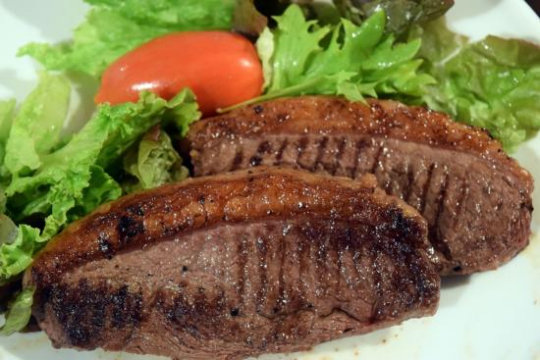Anemia is a condition you may not even know you have until an abnormality shows up on a routine blood test. In other cases, anemia can cause symptoms that send you to the doctor for a checkup. It may make you feel tired, faint and dizzy, or constantly cold. If you have anemia, you’re not alone. More than 3 million people in the United States have it, and it’s much more common among women, young children, and people with chronic health conditions.
There are many different types of anemia – over 400, in fact. The most common is iron-deficiency anemia, which is very treatable with small changes to your diet and lifestyle.
Red Blood Cells, Hemoglobin, and Iron-Deficiency Anemia
Your red blood cells have a very important job to do. They carry oxygen from your lungs to other parts of your body so your tissues and organs function normally. They also carry carbon dioxide back to your lungs so you can exhale it.
The way red blood cells carry oxygen is through a protein called hemoglobin. Your body uses iron to create hemoglobin. If you don’t have enough iron in your body, you can’t create enough hemoglobin. This is called iron-deficiency anemia.
The problem typically can be corrected by revamping your diet to include more iron-rich foods. In some cases, you may also need to take an iron supplement for an additional boost to get your iron levels back on track.
Iron-Boosting Foods
Most people get enough iron from the foods they eat. However, people with iron-deficiency anemia need to focus on getting more of the types of food that are rich in iron. These include:
- Red meat, pork, and chicken
- Fish and other seafood such as clams, mollusks, and mussels
- Beans and nuts
- Dark leafy vegetables such as spinach
- Breakfast cereals fortified with iron
- Dried fruits
Meat is by far the biggest source of iron in most Western diets. Vegetarians and vegans may have a tougher time getting the same amount of iron as their meat-eating friends, so they will have to focus on consuming iron-rich vegetables and fruits. Anemic vegetarians and vegans should speak to a nutritionist about their unique dietary needs.
Dietary changes alone are not always enough to overcome iron-deficiency anemia. In these cases, your doctor will recommend that you take an iron supplement.
Pregnant women also need more iron since they are sharing their blood with their growing baby, so they will usually be prescribed an iron supplement while they are pregnant and breastfeeding.
Don’t Forget the Vitamin C
Vitamin C is also an important part of the equation when battling iron-deficiency anemia because it helps your body absorb the iron you consume in your diet. To increase absorption, eat or drink vitamin C-rich foods such as oranges and citrus fruits, strawberries, melons, tangerines and tomatoes. Vegetables such as broccoli, leafy greens and peppers are also high in vitamin C.
With these dietary changes and regular monitoring of your iron levels with your doctor, you can overcome iron-deficiency anemia.
About Crozer Keystone Staff
Crozer-Keystone Health System’s physicians, specialists and advanced practitioners are committed to improving the health of our community through patient-centered, quality care across a full continuum of health services. Crozer Brinton Lake is Crozer-Keystone’s comprehensive outpatient care facility in western Delaware County, offering primary care, specialty services, outpatient surgery and advanced cancer treatment. Contact us: 300 Evergreen Drive, Glen Mills, PA 19342 http://www.crozerkeystone.org/Brinton-Lake 1-855-254-7425
- Web |
- More Posts(131)


Comments